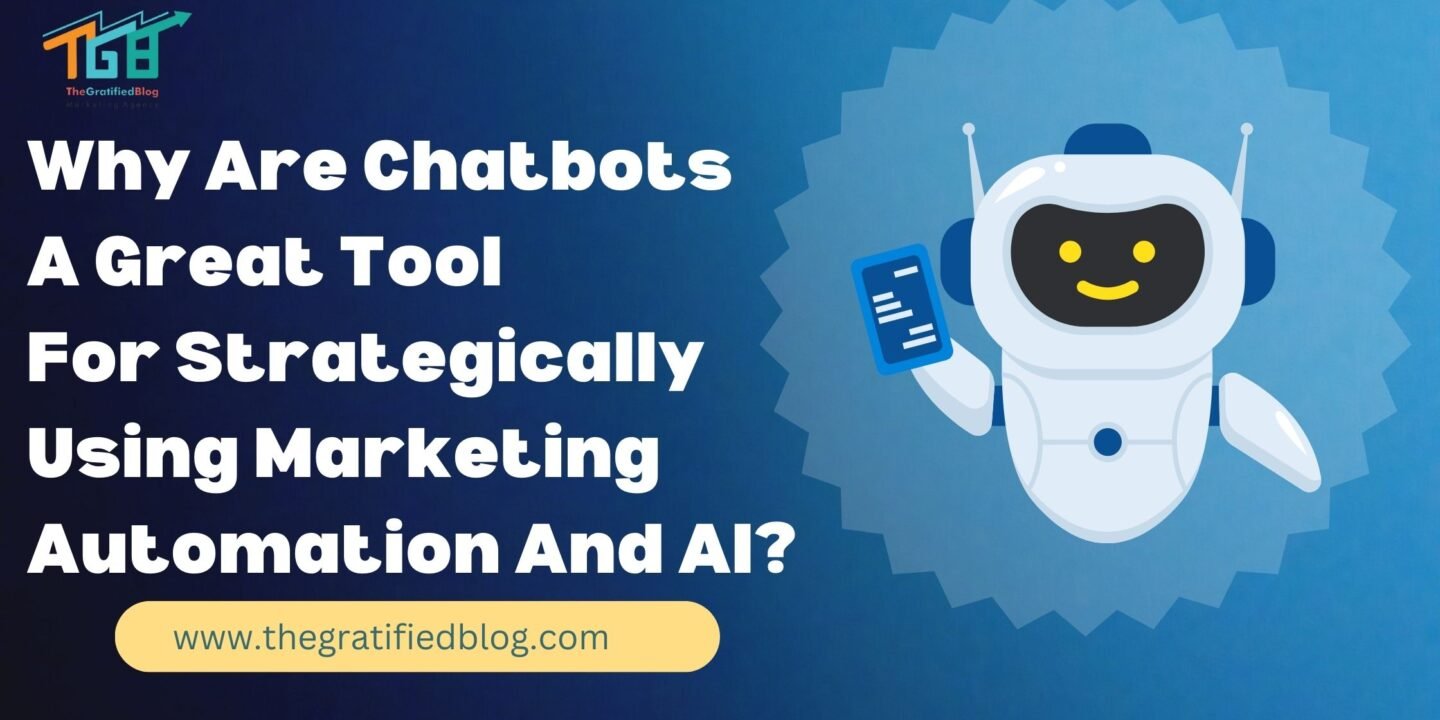
In an era where digital marketing constantly evolves, staying ahead of the curve has become the ultimate goal for businesses seeking to thrive in the competitive landscape. The fusion of artificial intelligence (AI) and marketing automation has emerged as the secret sauce for success, and at the heart of this transformation lies the indomitable chatbot.
Chatbots have swiftly become the cornerstone of modern marketing strategies, allowing businesses to engage with their audience more effectively and streamline their operations with unprecedented efficiency. In this blog post, we’ll delve into why chatbots are the perfect tools for strategically harnessing the power of marketing automation and AI.
Join us on this journey as we unravel the secrets behind the rise of chatbots and their pivotal role in shaping the future of marketing, particularly in answering the question, “Why are chatbots a great tool for strategically using marketing automation and AI?” We’ll explore how this trifecta of technologies revolutionizes how companies connect with their customers, drive conversions, and gain invaluable insights.
What Are Marketing Automation And AI In The Context Of Modern Marketing?
They are marketing automatusessing technology and software platforms to automate repetitive marketing tasks and workflows. It allows businesses to streamline their marketing processes, optimize customer engagement, and deliver personalized content to their target audience at the right time. Some everyday tasks that can be automated through marketing automation include email marketing, social media posting, lead nurturing, and customer segmentation. By automating these processes, businesses can save time, reduce manual errors, and improve the efficiency of their marketing efforts.
Artificial intelligence (AI) has become a game-changer in modern marketing. AI in marketing involves using advanced algorithms and machine learning techniques to analyze data, make predictions, and optimize marketing strategies. AI can be applied to various aspects of marketing, including:
- Personalization: AI can analyze customer data and behavior to create highly personalized marketing campaigns. It can recommend products or content tailored to individual preferences, increasing the chances of conversion.
- Predictive Analytics: AI can forecast future trends and customer behaviors, helping marketers make data-driven decisions and allocate resources effectively.
- Chatbots and Virtual Assistants: AI-powered chatbots, virtual assistants, and helper bots provide instant customer support and engagement, improving user experiences and response times.
- Content Generation: AI can generate content, such as product descriptions and reports, based on data and patterns, saving time for marketers and maintaining consistency.
- Ad Targeting: AI helps optimize ad targeting by analyzing user data and adjusting ad placements in real time to reach the most relevant audience.
The Rise of Chatbots in Marketing
Chatbots have come a long way in marketing, evolving from simple rule-based systems to sophisticated AI-powered tools. Here’s a brief overview of their journey:
- Rule-Based Chatbots (Early 2000s): The initial chatbots were basic and operated using predefined rules. They could only respond to specific keywords or phrases, limiting interactions and often frustrating for users.
- AI-Powered Chatbots (Mid-2010s): With natural language processing (NLP) and machine learning advancements, chatbots have become more innovative and context-aware. They could understand user intent better and provide more relevant responses. This marked the transition from rule-based to AI-powered chatbots.
- Conversational AI (Present): Modern chatbots are powered by advanced AI and machine learning algorithms. They can engage in natural, human-like conversations, remember user preferences, and learn from past interactions to improve future responses. These chatbots offer a more seamless and personalized user experience.
How Do AI And Automation power Chatbots?
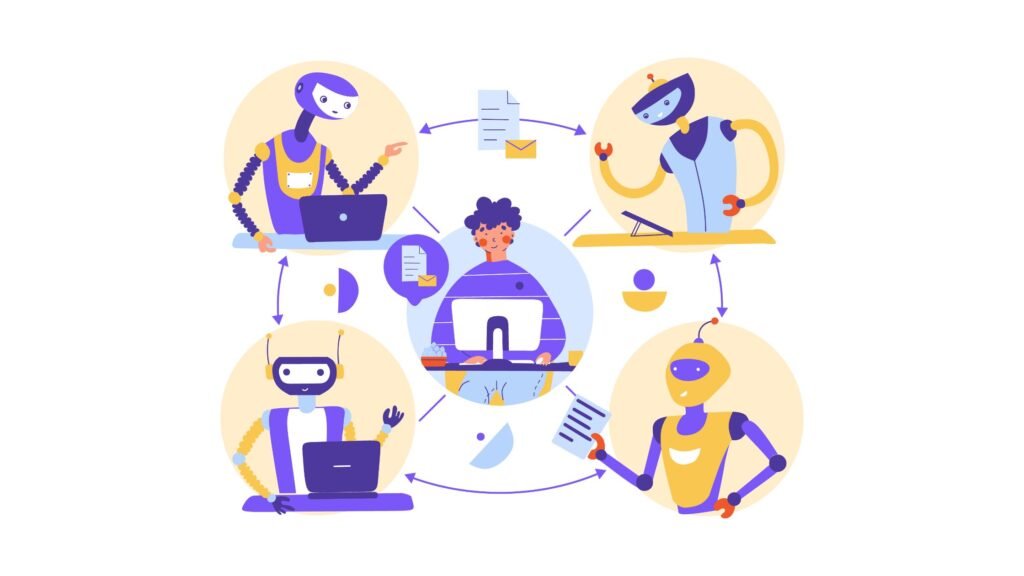
Chatbots leverage AI and automation in the following ways:
- Natural Language Processing (NLP): NLP is a subset of AI that enables chatbots to understand and interpret human language. It allows chatbots to recognize user intent, extract relevant information, and generate contextually appropriate responses.
- Machine Learning: Chatbots use machine learning algorithms to improve their performance continuously. They learn from user interactions, adapt to changing trends, and refine their responses.
- Automation: Chatbots automate various tasks, such as answering frequently asked questions, providing product recommendations, processing orders, and scheduling appointments. This automation saves time and resources for businesses.
- Data Integration: Chatbots can access and integrate with various data sources, such as customer databases or inventory systems, to provide real-time information to users.
- Multi-Channel Integration: Chatbots can be integrated into websites, mobile apps, social media platforms, and messaging apps, allowing businesses to engage with customers across multiple channels.
Key Benefits of Using Chatbots in Marketing Automation
Integrating chatbots into marketing automation brings many advantages that can revolutionize your business. Here are the key benefits of using chatbots in marketing automation:
- 24/7 Availability: Chatbots can engage with customers and prospects around the clock, ensuring leads and inquiries are answered.
- Improved Customer Engagement: Chatbots provide instant responses, enhancing user experiences and keeping customers engaged in real-time.
- Efficient Lead Generation: Chatbots can qualify leads, gather contact information, and initiate follow-up actions, streamlining the lead generation process.
- Personalization: AI-powered chatbots analyze user data to deliver personalized recommendations and content, boosting conversions.
- Cost Savings: By automating repetitive tasks, chatbots reduce labor costs associated with customer support and data collection.
- Scalability: Chatbots can handle multiple conversations simultaneously, allowing businesses to scale customer interactions without increasing staff.
- Data Insights: Chatbots collect valuable user data, providing insights that inform marketing strategies and product development.
- Consistency: Chatbots ensure consistent messaging and information delivery, reducing the risk of human errors.
- Enhanced Customer Support: Chatbots can immediately answer frequently asked questions, resolving common issues without human intervention.
- Cross-Channel Integration: Chatbots can interact seamlessly across various platforms, including websites, social media, and messaging apps, ensuring a consistent brand presence.
Real-world Examples of Chatbot Success in Marketing
Real-world examples of chatbot success in marketing illustrate the tangible benefits these AI-powered tools can bring to businesses. Here are a few notable instances:
- Sephora’s Virtual Artist: Sephora, a leading cosmetics retailer, implemented a chatbot called “Virtual Artist.” This chatbot allows customers to try on makeup virtually, providing personalized product recommendations and tutorials. It enhances user engagement and significantly increases conversion rates by helping customers make informed purchasing decisions.
- Domino’s Pizza: Domino’s Pizza’s chatbot, known as “Dom,” allows customers to place orders via text or voice commands. Dom also tracks orders in real-time, providing updates to customers. This seamless and convenient ordering process has increased sales and customer satisfaction.
- Spotify’s Discover Weekly: While not a traditional chatbot, Spotify uses AI algorithms to create personalized playlists for its users. These playlists, known as “Discover Weekly,” analyze user listening habits and provide music recommendations. This AI-driven feature has contributed to increased user retention and engagement.
Why Are Chatbots A Great Tool For Strategically Using Marketing Automation And AI?
Chatbots are excellent tools for strategic marketing automation and AI because they provide 24/7 availability, instant responses, scalability, efficiency, personalization, data insights, consistency, cost savings, multi-channel integration, and continuous learning.
How to Strategically Implement Chatbots in Your Marketing
Here are the critical points for strategically implementing chatbots in marketing. By following these steps, you can effectively leverage chatbots to enhance marketing efforts.
- Set Clear Objectives: Define your goals.
- Identify Use Cases: Determine where chatbots add value.
- Select the Right Platform: Choose a suitable chatbot solution.
- Design Conversational Flows: Plan user interactions and maintain brand consistency.
- Integration: Integrate chatbots into relevant platforms.
- Training and Testing: Ensure accurate responses through training.
- Data Utilization: Gather and analyze customer data.
- Personalization: Offer tailored content and recommendations.
- Multi-Channel Reach: Extend chatbot interactions across channels.
- Monitoring and Optimization: Continuously improve chatbot performance.
- Compliance and Privacy: Adhere to data privacy regulations.
- User Education: Promote chatbot use among customers.
- Feedback Loop: Gather user feedback for enhancements.
- Human Backup: Have a smooth transition to human support.
- Measure ROI: Track key performance indicators for evaluation.
What is The Risk Of Implementing A Chatbot?
Implementing chatbots in your business can bring numerous benefits, but it’s essential to be aware of potential risks and challenges:
- Customer Frustration: If not correctly designed and trained, chatbots can frustrate customers with inaccurate responses or an inability to understand complex queries. This can lead to a negative user experience.
- Limited Understanding: Chatbots may need help with nuanced language, idioms, or slang, leading to misinterpreting user inputs.
- Data Privacy Concerns: Collecting and storing user data for chatbot interactions can raise privacy and security issues. Ensuring compliance with data protection regulations is crucial.
- Over-Automation: Over-reliance on chatbots can diminish the human touch, potentially alienating customers who prefer human interactions, especially in complex or emotionally sensitive situations.
- Initial Implementation Costs: Developing and deploying chatbots can involve significant upfront technology, training, and integration costs.
- Maintenance and Updates: Chatbots require continuous maintenance, monitoring, and updates to stay relevant and practical. Neglecting these aspects can lead to decreased performance.
- Integration Challenges: Integrating chatbots with existing systems and workflows may pose technical challenges, especially in complex IT environments.
- Brand Consistency: Ensuring chatbots maintain a consistent brand voice and align with company values can be challenging.
- Loss of Jobs: In some cases, automation through chatbots can lead to job displacement for customer service representatives or data entry personnel.
- Limited Problem-Solving: Chatbots are typically only as good as their programming and training data. They may need help solving unique or complex problems requiring human creativity and adaptability.
FAQs
Q1. Are chatbots secure, and how do they handle sensitive customer information?
Chatbot security depends on the implementation. They should be designed with security in mind, and data handling should comply with relevant privacy regulations. Sensitive customer information should be handled with encryption and strict access controls.
Q2. What data can chatbots collect, and how is it used for marketing?
Chatbots can collect user preferences, behavior, and demographic information. This data can be used for personalizing marketing campaigns, segmenting audiences, and improving product recommendations.
Conclusion
Chatbots are indispensable tools for elevating marketing through automation and AI. They enhance customer experiences, drive ROI, and unlock valuable data insights. We invite you to share your thoughts and experiences by commenting on our blog.
Your input is vital as we collectively shape the future of marketing with chatbots. Thank you for your interest and engagement in this exciting journey!




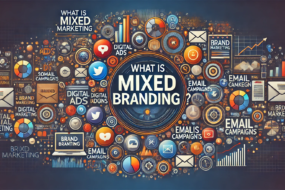
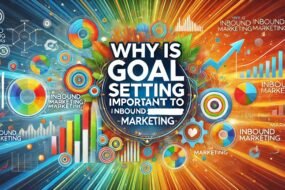
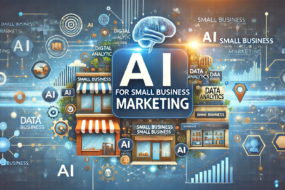

No Comments